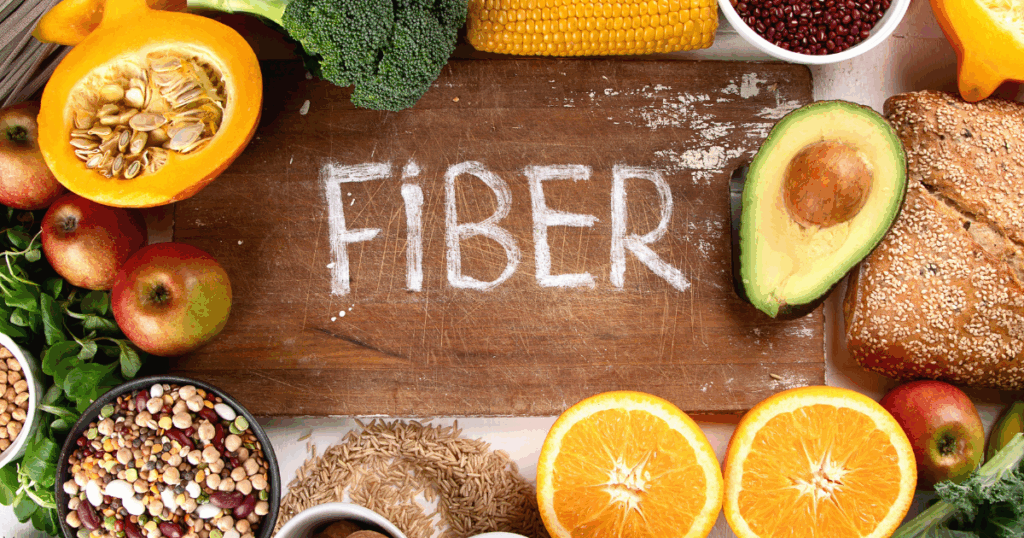Why Gut Health Is Central to Midlife Wellness
If you’re over 40 and experiencing bloating, mood swings, or hormonal fluctuations—your gut might be playing a bigger role than you think.
As a family nurse practitioner, I’ve seen countless women struggle with digestion and hormone balance, only to realize that their gut health was the missing link.
The gut isn’t just where food is digested—it’s where nutrients are absorbed, hormones are processed, and much of your immune system lives. And after 40, shifts in estrogen, progesterone, and even thyroid hormones can affect how your gut functions.
The good news? You can improve your gut health naturally, and in doing so, support better energy, mood, digestion, and metabolism.
The Gut-Brain-Hormone Connection Explained
Your gut has its own nervous system—the enteric nervous system—often called the “second brain.”
It’s also home to trillions of bacteria (your microbiome), which:
- Regulate inflammation
- Influence mood via neurotransmitters like serotonin and dopamine
- Help metabolize hormones like estrogen
- Impact how you digest and absorb nutrients
When your gut is balanced, your body functions more smoothly. When it’s imbalanced (called dysbiosis), everything from PMS to brain fog to weight gain can worsen.
Hormonal shifts during perimenopause can slow digestion, change gut motility, and alter the balance of bacteria, making this connection even more important after 40.
Signs Your Gut Might Be Out of Balance
You don’t have to have IBS to have gut dysfunction. Here are subtle (and not-so-subtle) clues:
- Bloating, especially after meals
- Gas, reflux, or constipation
- Loose stools or urgency
- Food sensitivities or frequent stomach pain
- Sugar or carb cravings
- Fatigue after eating
- Brain fog or mood swings
- Skin issues (acne, eczema, rosacea)
Even if your labs are “normal,” these signs indicate your gut may need support.
Foods and Habits That Support Gut Health
You can start healing your gut with small, consistent changes.
1. Eat More Fiber
Fiber feeds beneficial gut bacteria and supports hormone elimination through healthy bowel movements.
- Aim for 25–30g per day
- Sources: leafy greens, oats, berries, beans, chia, flax, apples
2. Incorporate Fermented Foods
These introduce beneficial bacteria to your microbiome.
- Try: sauerkraut, kefir, yogurt (dairy or non-dairy), kimchi, miso
3. Stay Hydrated
Dehydration leads to constipation and sluggish digestion. Aim for half your body weight in ounces daily.
4. Chew Your Food Slowly
Digestion starts in your mouth. Chewing thoroughly helps prevent bloating and improves nutrient absorption.
5. Reduce Sugar and Processed Foods
Sugar feeds harmful bacteria and promotes inflammation. Crowd your plate with real, whole foods instead.
6. Manage Stress
Stress shuts down digestion. Practice breathing, meditation, or grounding to shift back into rest-and-digest mode.
When to Consider Probiotics, Testing, or Functional Support
If you’ve tried lifestyle changes and still feel off, it may be time for targeted help.
Consider:
- Probiotics: Look for multi-strain, high-quality brands. Rotate every few months.
- Digestive enzymes: Help break down protein, fat, and carbs if you feel sluggish after meals.
- Stool testing: Can identify imbalances, infections, or inflammation in the gut.
- Food sensitivity testing: May reveal hidden triggers that cause bloating or fatigue.
🩺 As a practitioner, I often combine lifestyle changes with simple supplementation for best results—but it always starts with the basics.
Final Thoughts from Me to You
Your gut is your foundation. It affects everything—your mood, energy, hormones, and how you show up in your life.
After 40, nurturing your gut isn’t just a digestive decision—it’s a hormonal and emotional one too.
Start small. Eat more fiber. Slow down. Notice how your body responds. And know this:
You can reset your gut. You can feel good again. You can heal—one meal, one breath, one step at a time.

